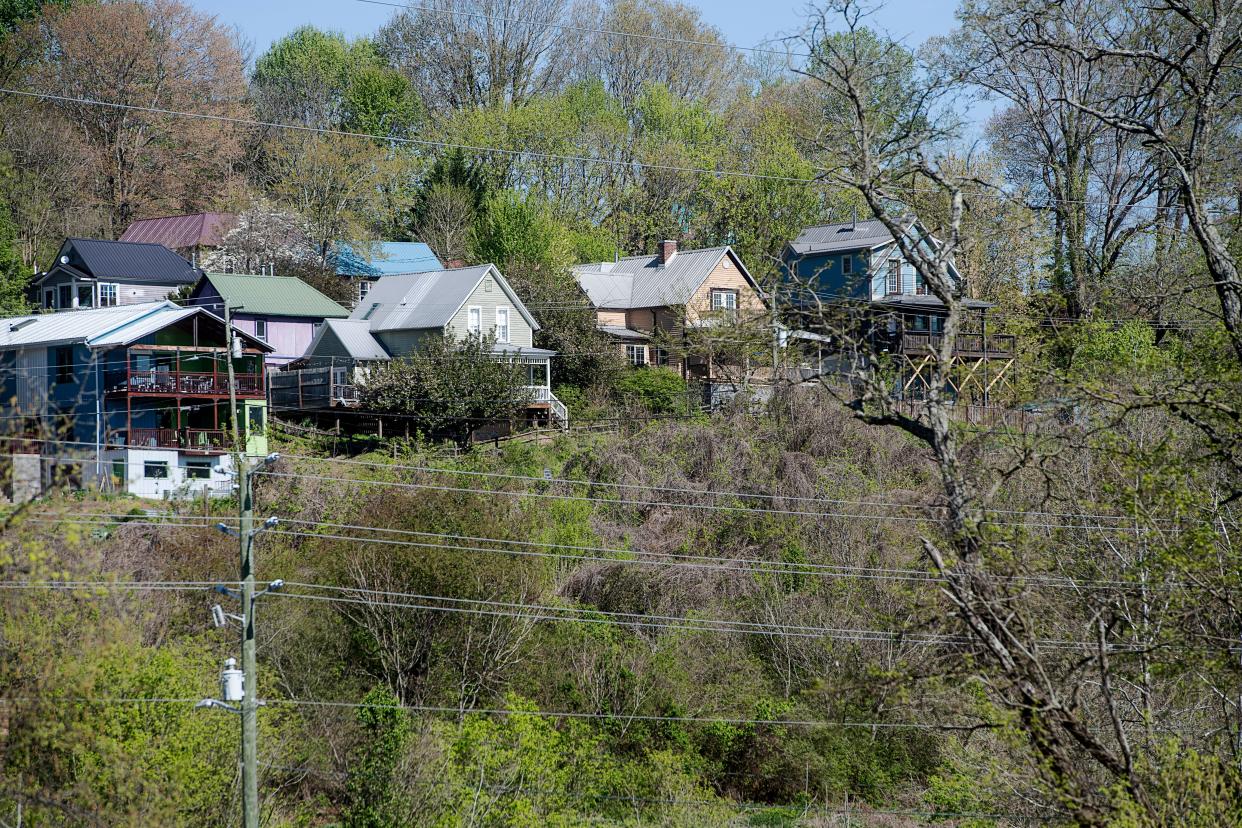Airbnbs in Asheville: How many of Buncombe's 5,000 are in city limits? How many are legal?

ASHEVILLE - Short-term vacation rentals, a popular and controversial sector of the tourism industry, have made recent news with revelations about their local growth in sales and numbers, currently at more than 5,000 listings with $229 million in revenue throughout Buncombe County.
Now, data from Asheville shows approximately how many of those listings are inside the city that is at the center of a multimillion dollar county tourism marketing campaign. The data also shows despite an Asheville ban on whole-house rentals, illegal STRs persist inside the city.
As of July 5, there were 1,031 STRs inside city limits, or 20% of the 5,223 rentals countywide, according to the newest numbers from Asheville private contractor Rentalscape and the Buncombe County Tourism Development Authority.
Of the 1,031 advertising in the city, there's proof a little more than 800 are legal. Those are made up of 628 "homestays," where one or two rooms of a home are rented out while a long-term resident is also present, as well as around 180 whole-house rentals that had permits before the city's 2018 ban, according to city numbers.
That could leave somewhere over 200 that are operating illegally, despite a city contractor paid to help ferret them out and fines of $500 a day.
"We have a program that does a pretty good job of identifying where these things are, but it's still basically complaint-based," said Chris Collins, city land development manager.
Both Collins and TDA officials caution that numbers could have gaps, given that much of the business is informal and partially underground.
The city enacted the ban as an attempt to stop any loss of long-term rentals for locals and combat a stubborn housing crisis. Meanwhile, tourism continued to ramp up, boosted by the TDA's use of millions of dollars in lodging taxes to advertise Asheville as a place to visit. Rules restricting the rentals have been recently enacted in Woodfin and are being considered in Black Mountain and even unincorporated parts of the county.
One national STR analyst recently predicted an "Airbnb bust," though Airdna economist Jamie Lane said the market-wide revenue drop has not been extreme and averaged 3.6%.
Some, such as Andrew Fletcher, a professional musician, renter and city downtown spaces task force chair, say STRs tear apart the "fabric" of neighborhoods and reduce the number of potential workers needed by local businesses.
Others, such as rental management company owner Chip Craig of Black Mountain, say STRs make up a small portion of the housing stock and do not appear to have affected prices for rentals for local residents.
State Sen. Tim Moffitt, a Henderson County Republican, has proposed a bill to remove local governments' ability to ban STRs, though the bill would put in place some lesser ways to regulate.
Regulations and tracking of STRs are already limited after the North Carolina Court of Appeal's 2021 Schroeder v. City of Wilmington decision that said it was illegal to require registration by the rental owners. That meant regulation would have to be through zoning.
That also means the city's four zoning enforcement staffers not dedicated to noise ordinance violations have to juggle STR enforcement with other zoning complaints, Collins said. While Rentalscape's program can help identify potential violators, city staff still must find evidence of the violation, which takes time, the city land development manager said.
Initially, enforcement saw about 100 of the rental violations annually, he said, but that has reduced "as people started complying."
It's notable that the fines, like most penalties assessed by the city for things such as traffic and zoning violations, don't go to the department issuing them, but rather to local schools.
For that reason the enforcement can't be self-funding, Collins said, noting, "it's just a resource question."
Black Mountain short-term rentals: Short-term rentals pose problems for some in Black Mountain but a boon for tourism economy
Woodfin rentals: Woodfin council in split vote greenlights restrictions on short-term rentals
Joel Burgess has lived in WNC for more than 20 years, covering politics, government and other news. He's written award-winning stories on topics ranging from gerrymandering to police use of force. Got a tip? Contact Burgess at jburgess@citizentimes.com, 828-713-1095 or on Twitter @AVLreporter. Please help support this type of journalism with a subscription to the Citizen Times.
This article originally appeared on Asheville Citizen Times: Airbnbs in Asheville: How many of county's 5K in city limits? Legal?

